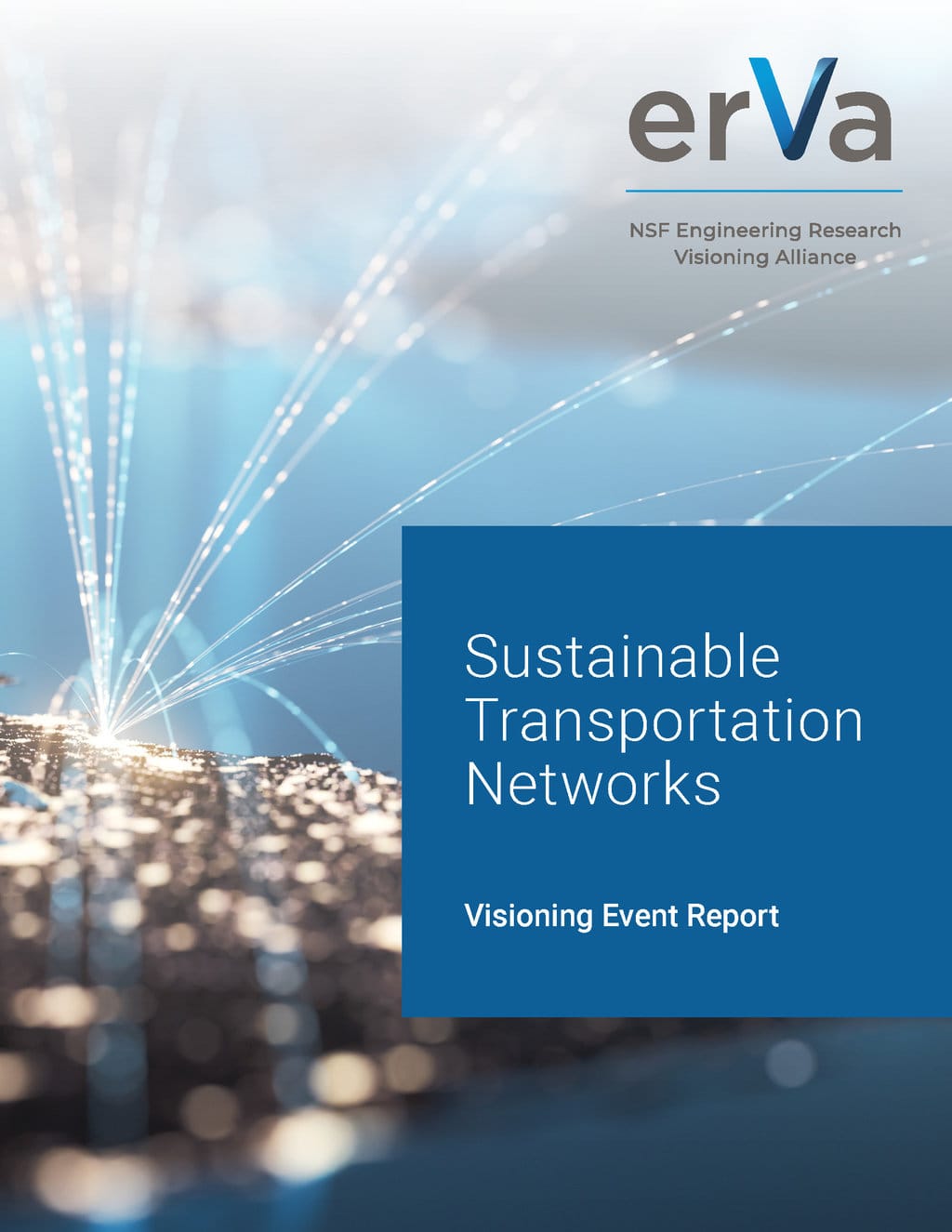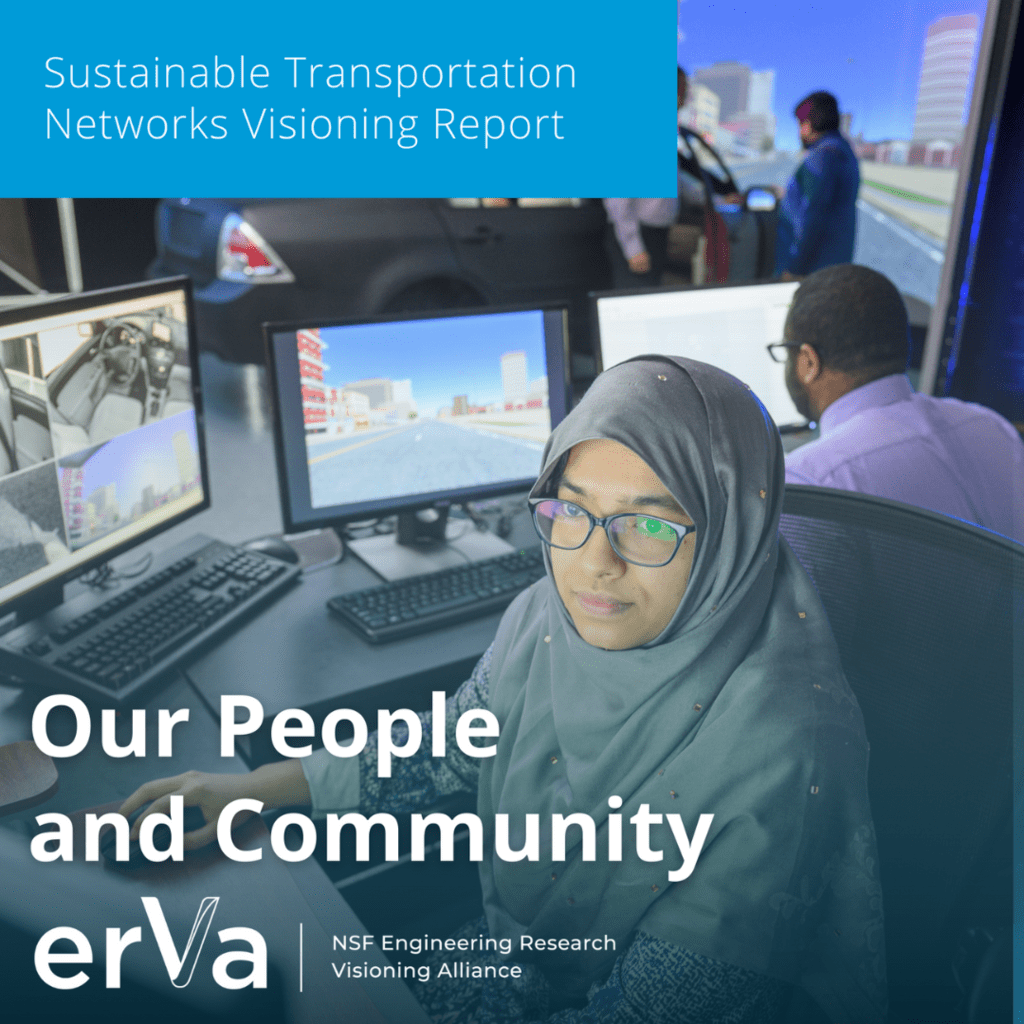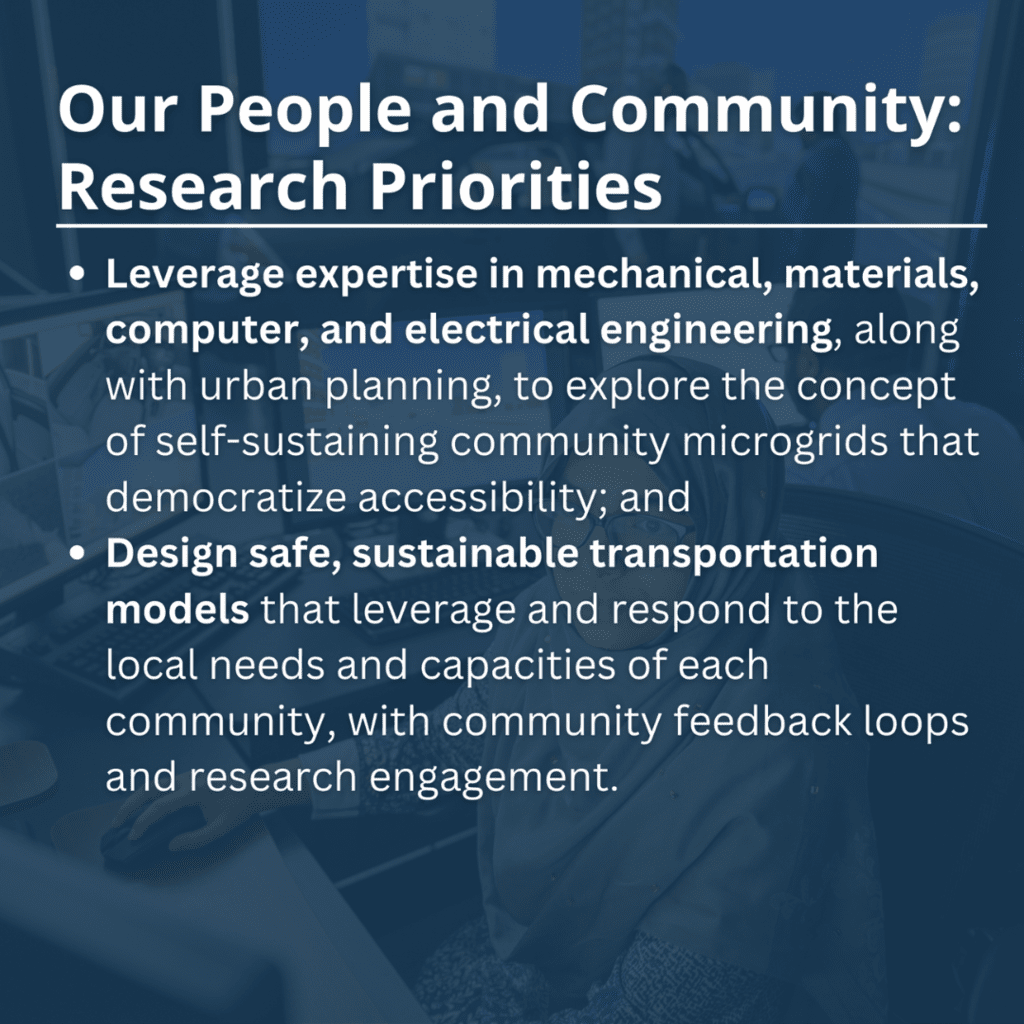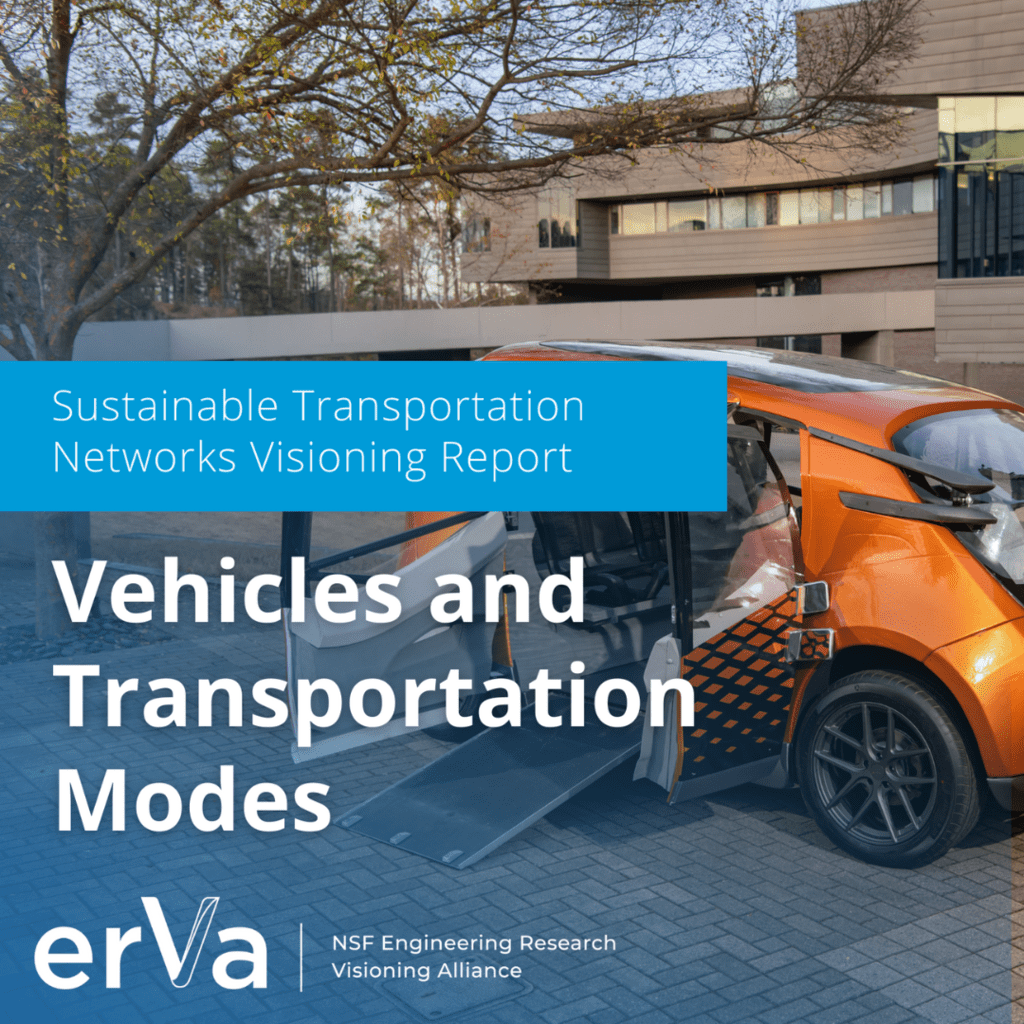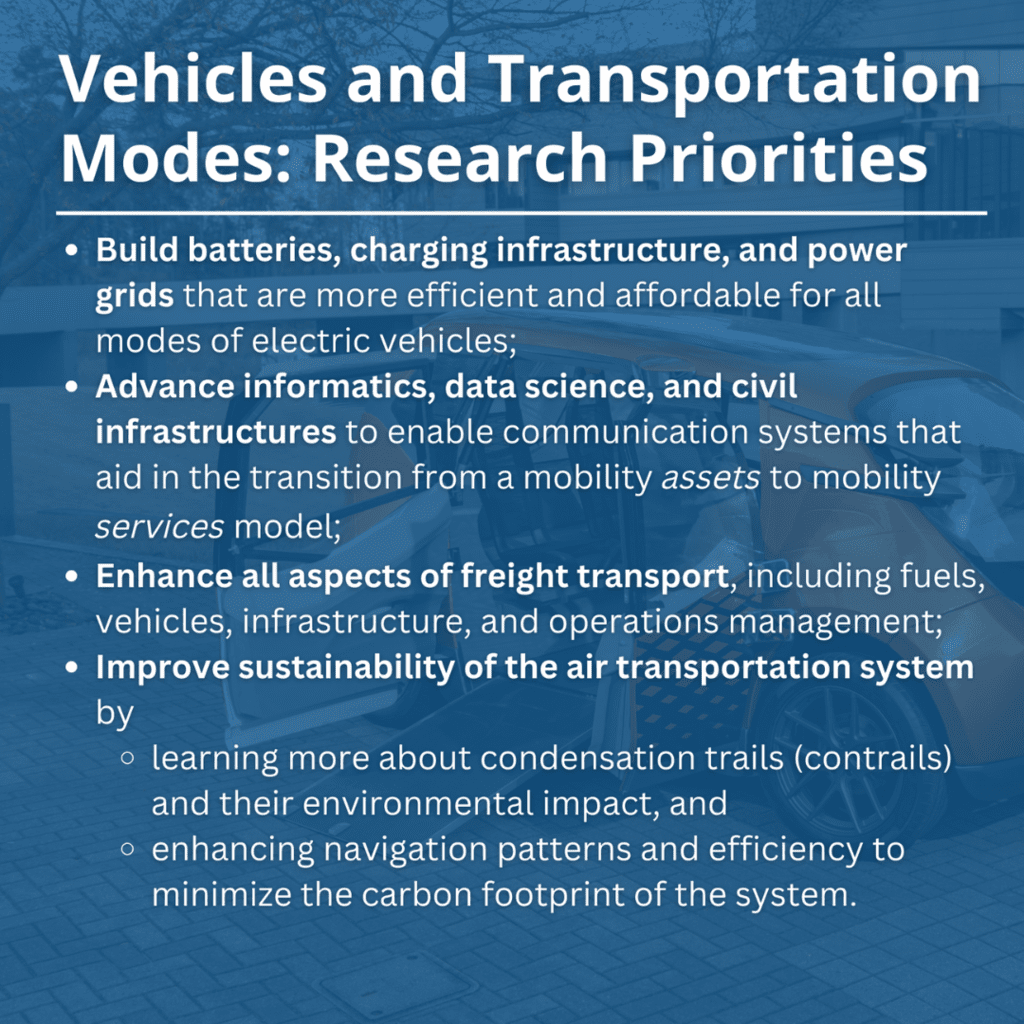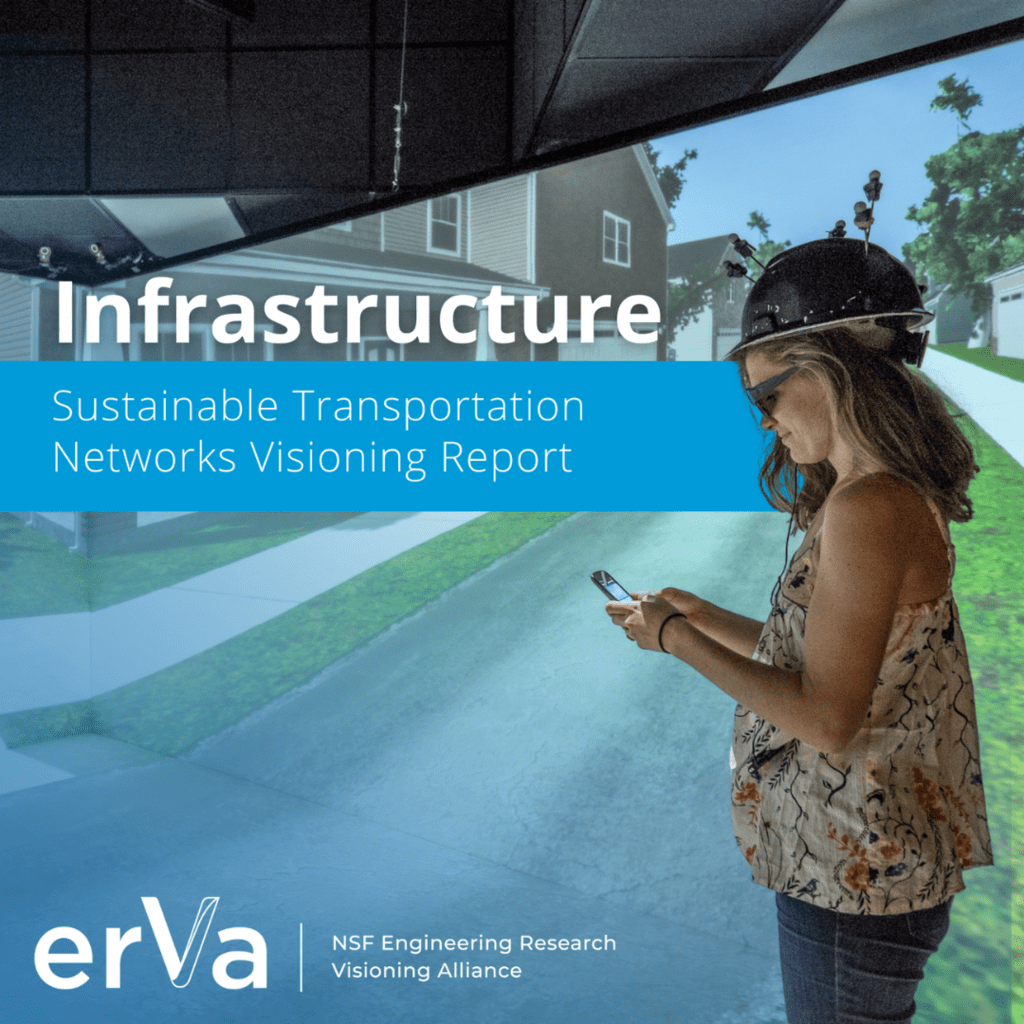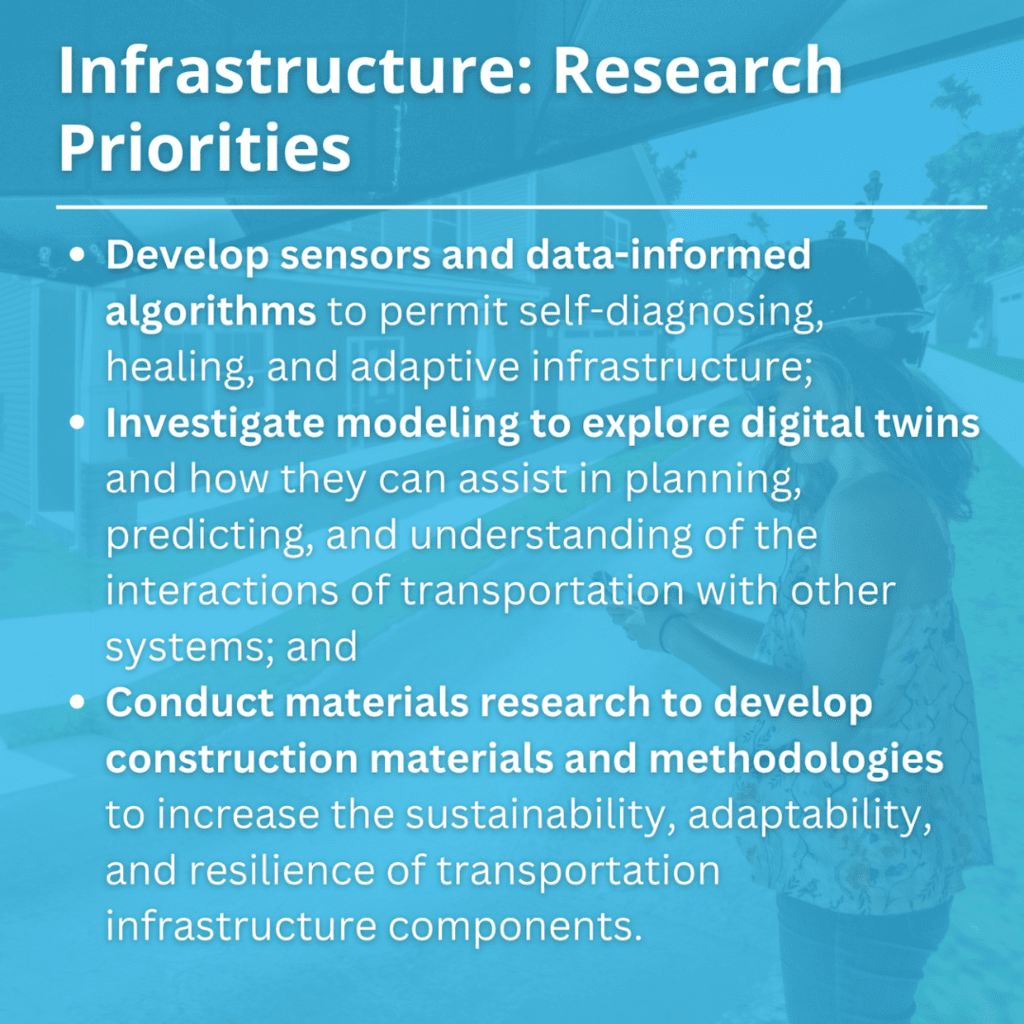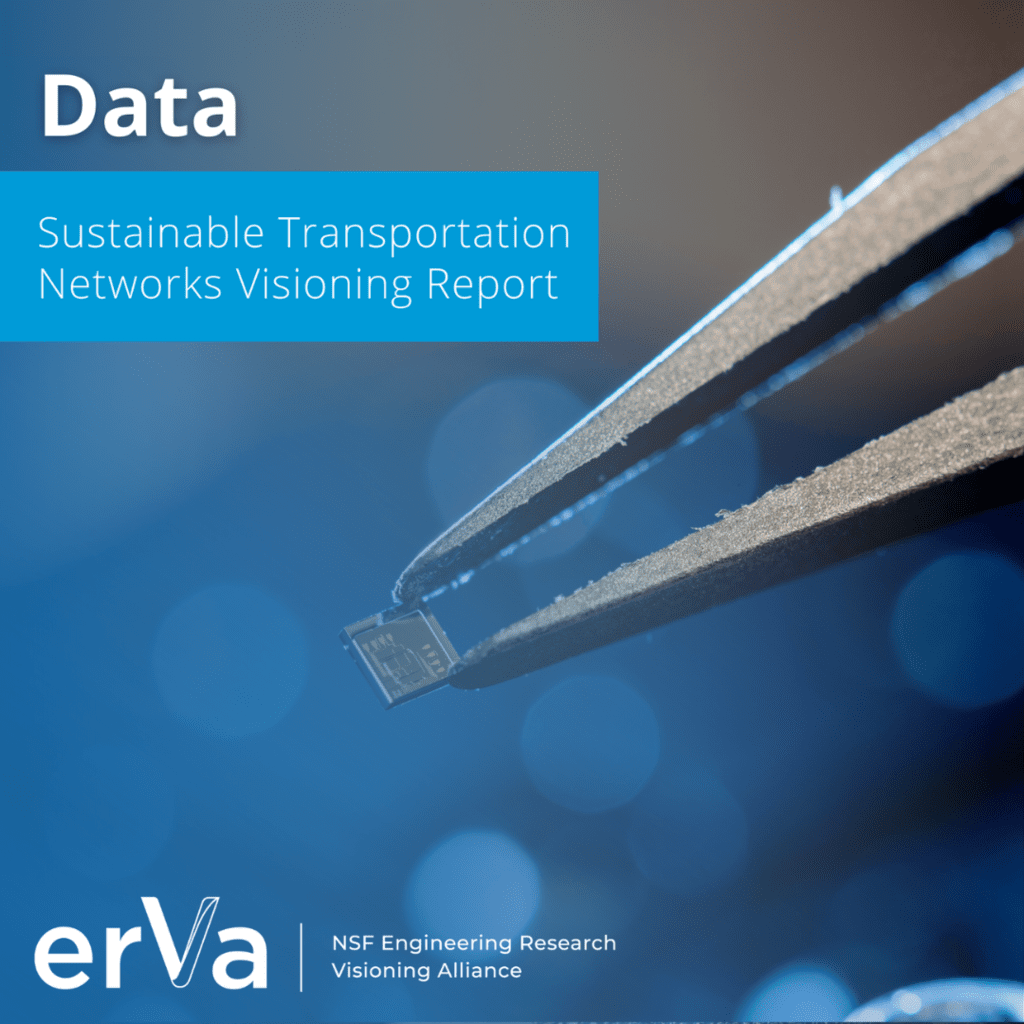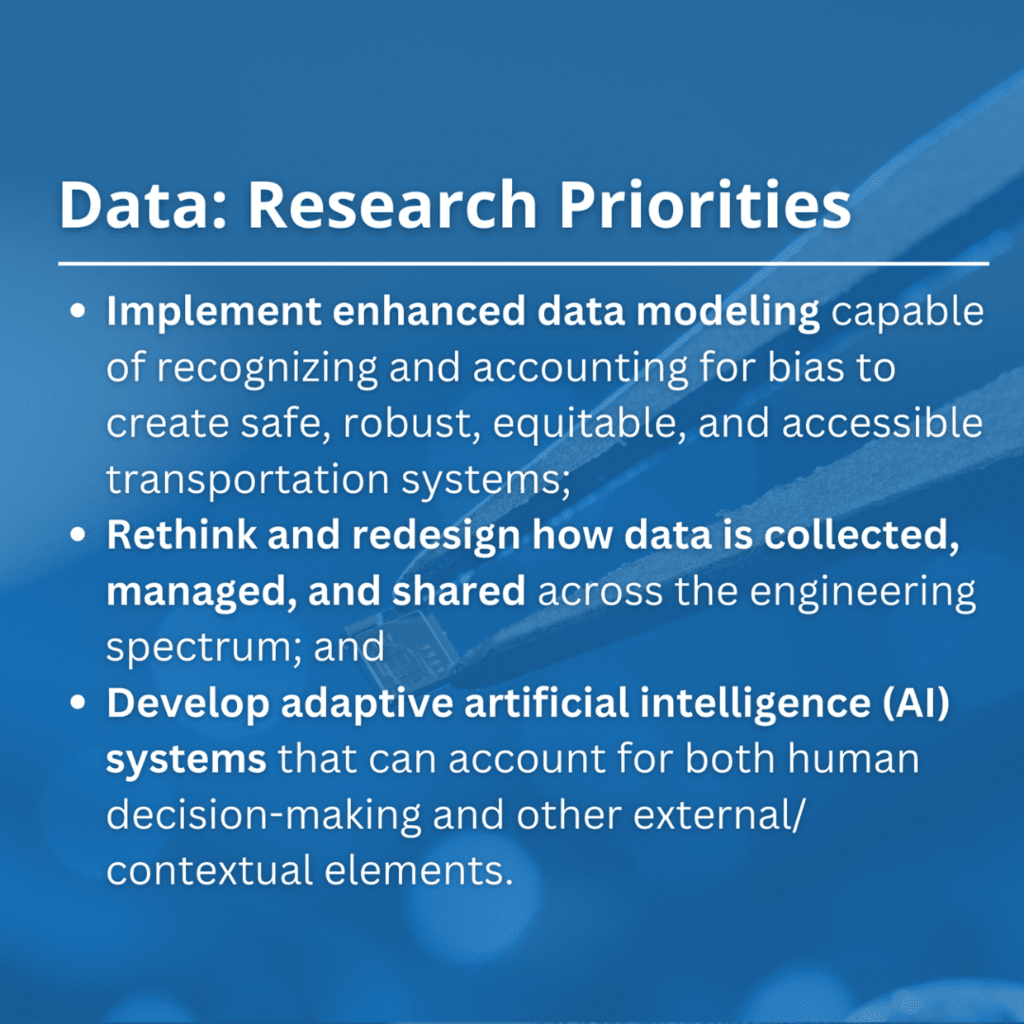Report: Sustainable Transportation Networks
Transportation benefits individuals, businesses, and communities by moving people, goods, and services across town and around the world. Transporting people or freight is also the largest user of energy in developed countries and the most rapidly growing energy user in developing nations. Future engineering research must address the need for sustainable mobility modes and the infrastructure, both physical and digital, that underpin transportation networks.
Future transportation networks and modes will embrace efficient energy usage, produce low or no emissions, use alternative construction materials and novel construction and manufacturing processes, enhance the efficiency of freight and logistics, and employ appropriate levels of automation and connectivity. Such was the consensus of participants at a November 2022 visioning event coordinated by the Engineering Research Visioning Alliance (ERVA) to identify roles for the engineering research community in achieving sustainable transportation networks.
Three high-level themes emerged from the event as broad research principles:
- Improve and leverage data-informed operations in transportation systems.
- Advance sustainable technologies that incorporate versatile materials for use in devices, infrastructure, and energy supply chains.
- Improve equity and accessibility for humans through better design of mobility devices and services.
Research in these areas must emphasize a range of attributes—safety, affordability, resilience, diversity, equity, inclusion, and accessibility in mobility—to drive the positive impacts on social and economic conditions that will improve all communities. Engineering can lead essential research efforts to accelerate solutions for the complex problems inherent in creating sustainable, equitable transportation systems.
The aim of this report is to inspire researchers and sponsors (public, private, and nonprofit) to pursue these priorities. ERVA challenges readers to disseminate this report and prioritize areas with potential for the greatest return on investment.
